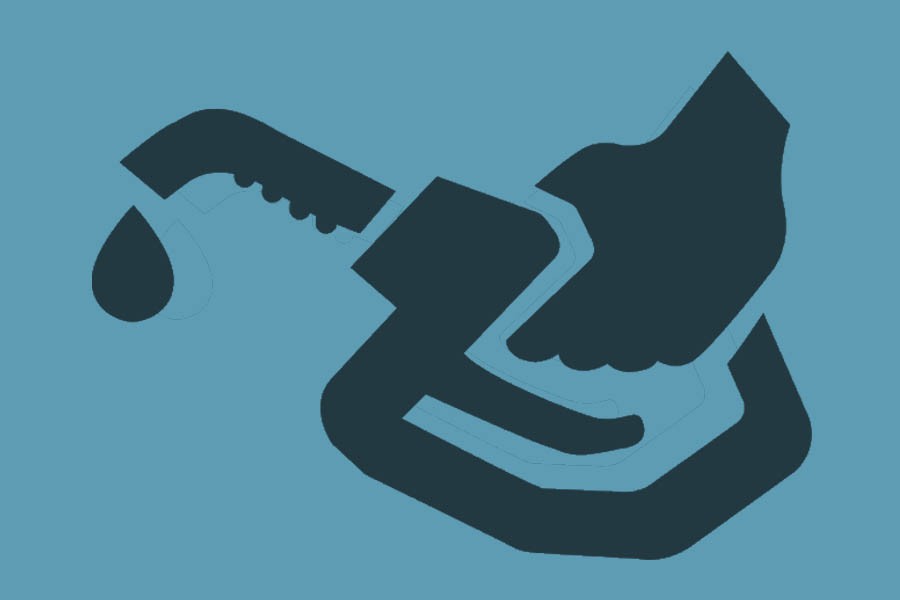
Published :
Updated :

The news that the fuel oil prices might go up soon was in the air for the past few weeks. It happened Wednesday night when the government hiked the prices of diesel and kerosene by Tk 15 a litre.
The Bangladesh Petroleum Corporation (BPC) had submitted a proposal to this effect to its controlling ministry several weeks back for consideration.
The corporation noted that it needed to adjust the prices of petroleum products upward because of the recent rise in the prices of the same in the international market. It, reportedly, has been incurring a loss of Tk 200 million per day from oil marketing operations.
None would dispute the necessity of hiking the fuel oil prices under the prevailing circumstances, for the subsidy burden of the government is quite heavy. It would be even heavier if the BPC keeps oil prices unchanged.
But the consumers are worried about the impact of the rise in fuel oil prices on their cost of living. Bus and truck owners, in all likelihood, wood demand hike in their fares to compensate for the rise in the prices of diesel oil, the widely used fuel oil. Similarly, the cost of power generation by diesel-run captive power plants will go up, leading to an inevitable rise in the manufacturing cost of a section of industries.
The overall price situation would also come under renewed pressure because of the upward revision of diesel and kerosene oil prices. Consumers have been going through a hard time in recent months because of the unabated rise in the prices of most essentials. This development would just be unbearable for the poor and low-income people. Even middle-class families will feel the pinch. Consumers have been complaining a lot lately. The problem is that none is giving a damn to such complaints.
The issue here is whether a 15-taka hike in diesel and kerosene prices in one go is justified or not. The relevant authorities should not cite the diesel price in India to justify the hike in prices of petroleum products in Bangladesh. In that case, consumers here could demand prices of many items, including rice and onion, in line with those in India. A rise in fuel prices can be justified. But the hike should be in commensurate with the affordability of poor consumers.
Rural poor use kerosene widely to light their homes. The government may argue that since electricity has now reached almost all villages, the use of kerosene has gone down. The reality is different. Still, there are millions of houses in rural areas that cannot afford electricity or do not have access to it. A 15-taka hike in the price of a litre of kerosene will surely hit the rural poor hard.
The government could have hiked the diesel and kerosene prices incrementally. The international prices of fuel oils have been going up since the global economy started opening up gradually with the pandemic easing substantially.
The government has also shunned the advice regarding an automatic price change mechanism for fuel oil prices, meaning adjusting the prices with the international market rates, whenever needed. This insulates the BPC from losses caused by ups and downs in international oil prices. Yet the corporation, if it decides so, will have the liberty to sustain losses to protect the consumers from any substantial hike in oil prices.
zahidmar10@gmail.com


 For all latest news, follow The Financial Express Google News channel.
For all latest news, follow The Financial Express Google News channel.